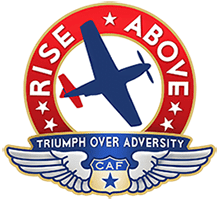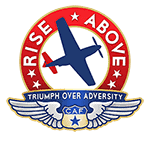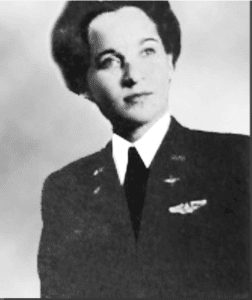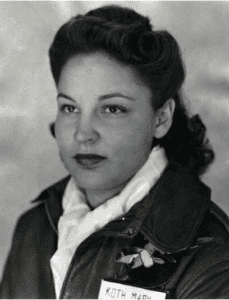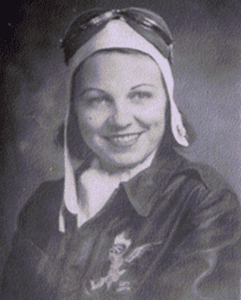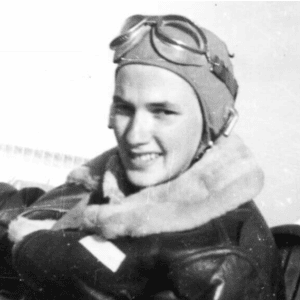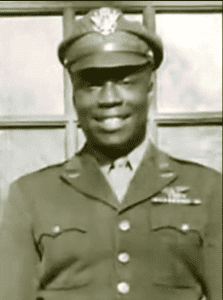 1LT Washington DuBois Ross
1LT Washington DuBois Ross
Fighter Pilot
332nd Fighter Group – 15th AF
Class 43-I-SE
“I was 12-years old and the pilots would barnstorm, and one Sunday they announced you could take flights at noon. On Sundays you went to church so I missed the first round, but we got our pennies [passengers were charged a fare of a penny a pound] together for the second round of flights. They started the engines and [the Ford Trimotor] shook. I started to think maybe it wasn’t such a good idea, but it staggered into the air and circled Ashland, and I told my parents I wanted to be a pilot.” – Washington D. Ross
Lt. Col. Washington D. Ross was born March 14, 1919 in Mound Bayou, Mississippi. His family moved to Ashland, Kentucky where he attended elementary school. He graduated from Ironton High School in Ohio. In 1941, he graduated with honors from Hampton Institute in Hampton, Virginia, earning an undergraduate degree. He obtained his private pilot’s license through the Civilian Pilot Training Program.
Ross’ first employment was as a storekeeper at the Norfolk Naval Shipyard in Portsmouth, Virginia. He then reported to Tuskegee Army Air Base in Tuskegee, Alabama for aviation cadet training, Class 43-1. In 1943, he was commissioned second lieutenant and sent to Selfridge Field in Michigan for overseas training.
He was taken by ship to Oran, Algeria and flown to Naples. Ross was then assigned to the 302nd Fighter Squadron, 332nd Fighter Group, which was stationed in Ramitelli, Italy.
In an interview he stated “Ten of us went overseas as replacements for the 332nd Fighter Group. We traveled on a passenger ship that had been converted in order to carry troops. The ship was fast, and once we left the coast of the U.S., we continued on unescorted, the theory being that the ship was able to outrun enemy U-boats. I suppose that theory was right since we arrived safely in Oran, Algeria. After spending some time in North Africa, where we were to receive additional training (which we didn’t get), we were flown to Naples, Italy. There we joined the 332nd, and from our base, flew patrol in P-39s. Eventually, we were transferred to the 15th Air Force, where we flew P-47s, and finally, P-5l s on long escort missions protecting bombers. I flew a combination of sorties and missions, for a total of 63. As the war wound down, my squadron was disbanded, and since I had enough missions, I was able to come home.”
Ross escorted bombers on missions to southern Germany and Austria, including to the cities of Schweinfurt, Salzburg, Munich, Stuttgart, Nurnberg, and Heidelberg. Ross flew one low-level mission, attacking anti-aircraft weapons in Southern France during which his aircraft was hit by small arms fire.
Upon completion of his overseas duty, he was assigned to Tuskegee Army Air Base as a twin-engine instructor for North American B-25 Mitchell bombers.
When Tuskegee closed, he was transferred to Lockbourne Air Force Base in Ohio and honorably discharged after four years of active duty. He joined the U.S. Air Force reserve, serving 20 years and retiring as a lieutenant colonel.
He worked for 10 years as a clerk for the U. S. Postal Service. In addition to his undergraduate degree, his education includes graduate study at Wayne State University, a bachelor’s degree and master’s degree in business administration from D’Etre University in Detroit, and a master’s degree from the University of Detroit. He was employed for 29 years as a teacher and department head by the Detroit Board of Education, retiring in 1984.
Sources:
American Air Museum in Britain
The Daily Independent
